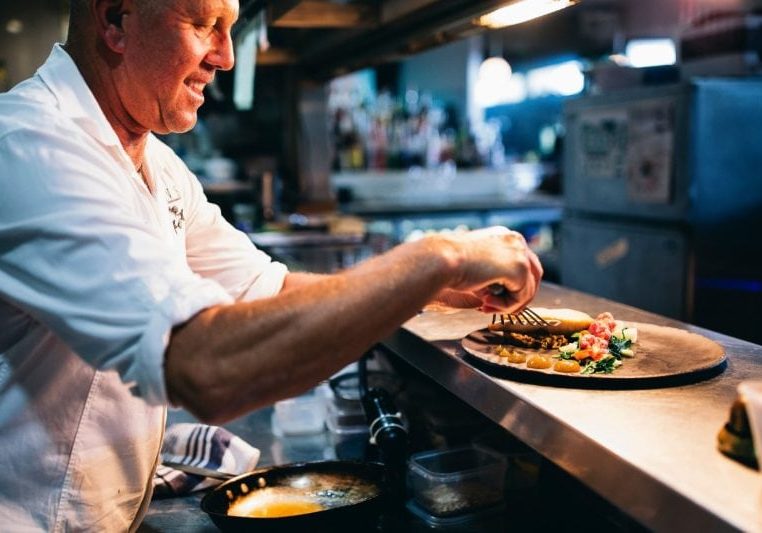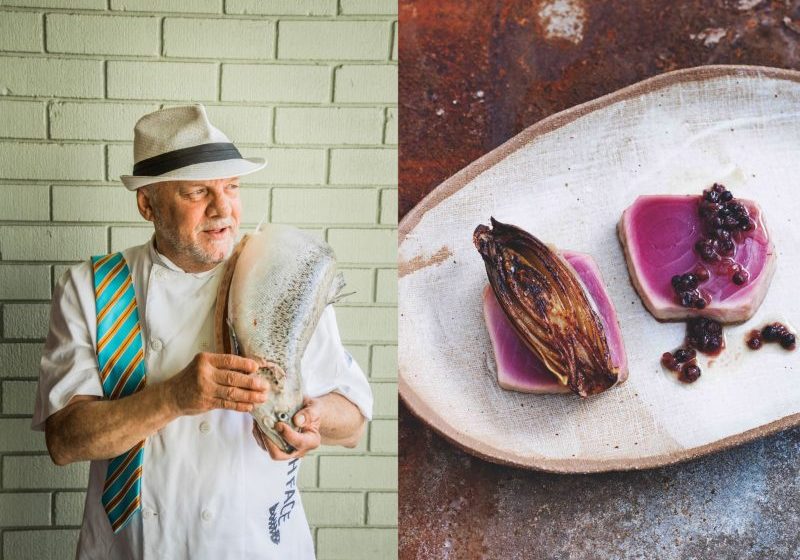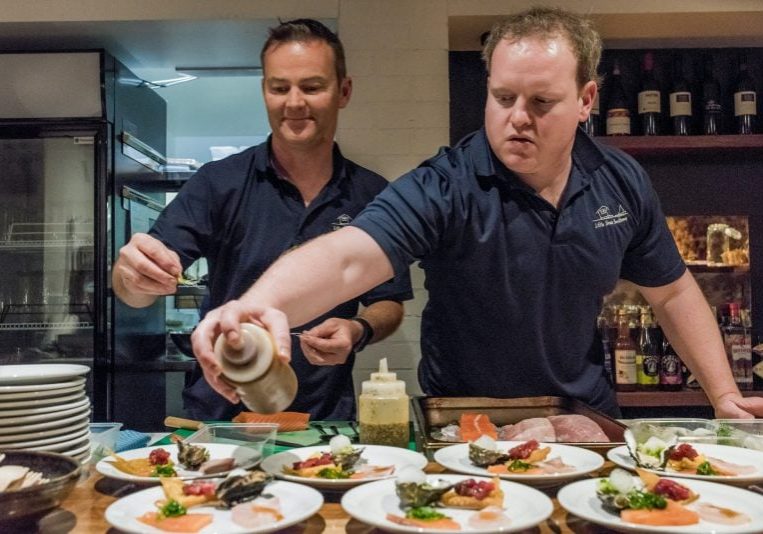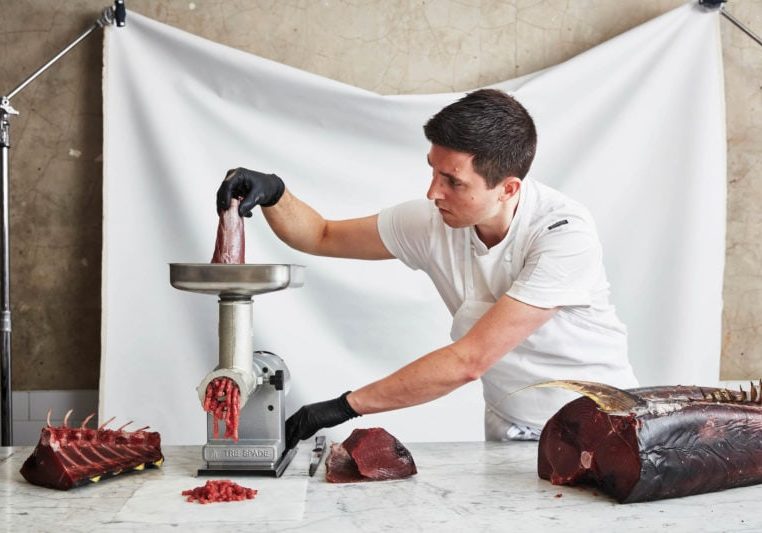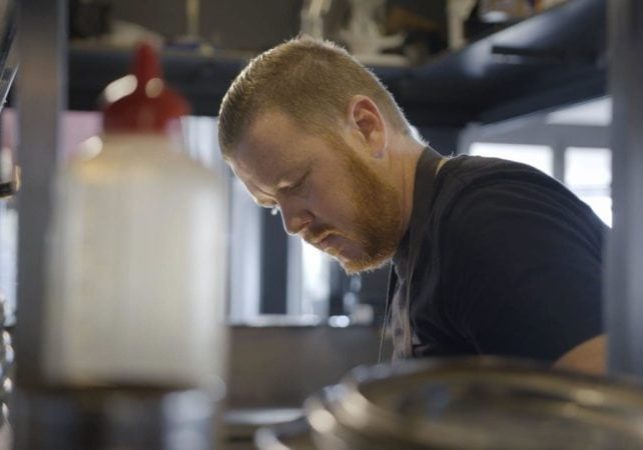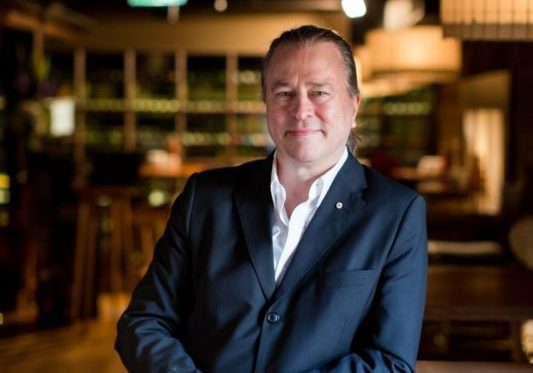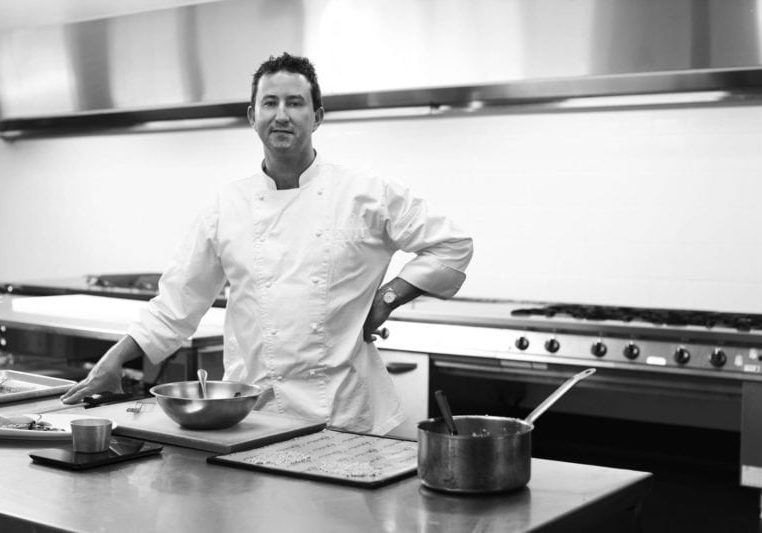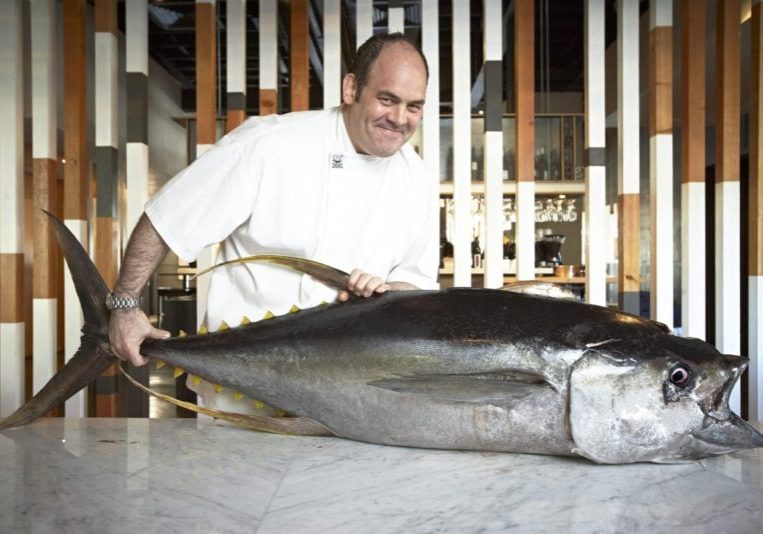Chat with a chef: David Allison says sustainable seafood is in demand
Catering company Stix’s food philosophy is to use fresh, quality, seasonal produce in all their meals—be they for airline passengers, café patrons, corporates or @HOME dining. It’s proving to be a winning approach, with the business growing and going from strength to strength. In the lead up to World Fisheries Day on 21 November, Tuna Australia spoke with the owner and executive chef David Allison about what drives his passion for sustainable seafood and his message to consumers.
For nine years until recently, Stix Catering prepared the majority of inflight meals for Qantas passengers in first and business class. What type of tuna dishes were served?
We used a lot of seafood in the Qantas menus, which were developed by Neil Perry of Rockpool Consulting. One of the main seafood we used was yellowfin tuna because of its fat content, size, and texture, making it easy to work with. In airlines, you must sear all the outside surfaces. One of the most popular dishes was Neil’s signature seared yellowfin tuna with Moroccan eggplant.
Are passengers interested to know where the food they’re eating comes from?
We didn’t get to tell passengers the sustainability story of the tuna they were served. That said, Qantas is a big advocate for sourcing ethical, sustainable, and quality products. This is largely driven by Neil Perry (and his consulting team), who has long been an advocate for seasonal, sustainable, and ethical fishing and farming.
Besides the catering business, you run a café in Marrickville and a 100-acre farm in the Hawkesbury to supply certified organic produce to your café and other restaurants. Have you seen a shift in customer interest in sustainability?
Absolutely. More and more consumers are wanting to pay for a better product. Seasonable, sustainable, ethical fishing and farming—that’s what chefs and consumers are demanding. I am seeing that shift happen a lot quicker. This trend is also driven by the new age of foodies coming through, including food bloggers and influencers.
Sustainable, re-generative, ethical, or organic products—be they caught or grown—are like champagne.There will never be enough of these products because the demand will eventually outstrip supply.
All the major supermarkets will be knocking on our doors, but they’ll have to change their mindset to be more sustainability-focused as well.
Why is it important to tell people where the seafood they’re eating comes from?
For a long time, seafood has unfairly had a bad rap. However, customer perceptions are changing. We share the origin story of our seafood with people because it’s like advertising. We let people know why their seafood is sustainable. Consumers want to know this—they have such attention to detail on products.
There’s a wave of young people that are really health conscious. And tuna is the perfect product—it has the right protein, vitamins, and minerals.
As individuals, we’re all told to eat more seafood and eat fewer fatty foods like lamb and beef. So, seafood is on the top of the list if you’re looking after your health and wellbeing.
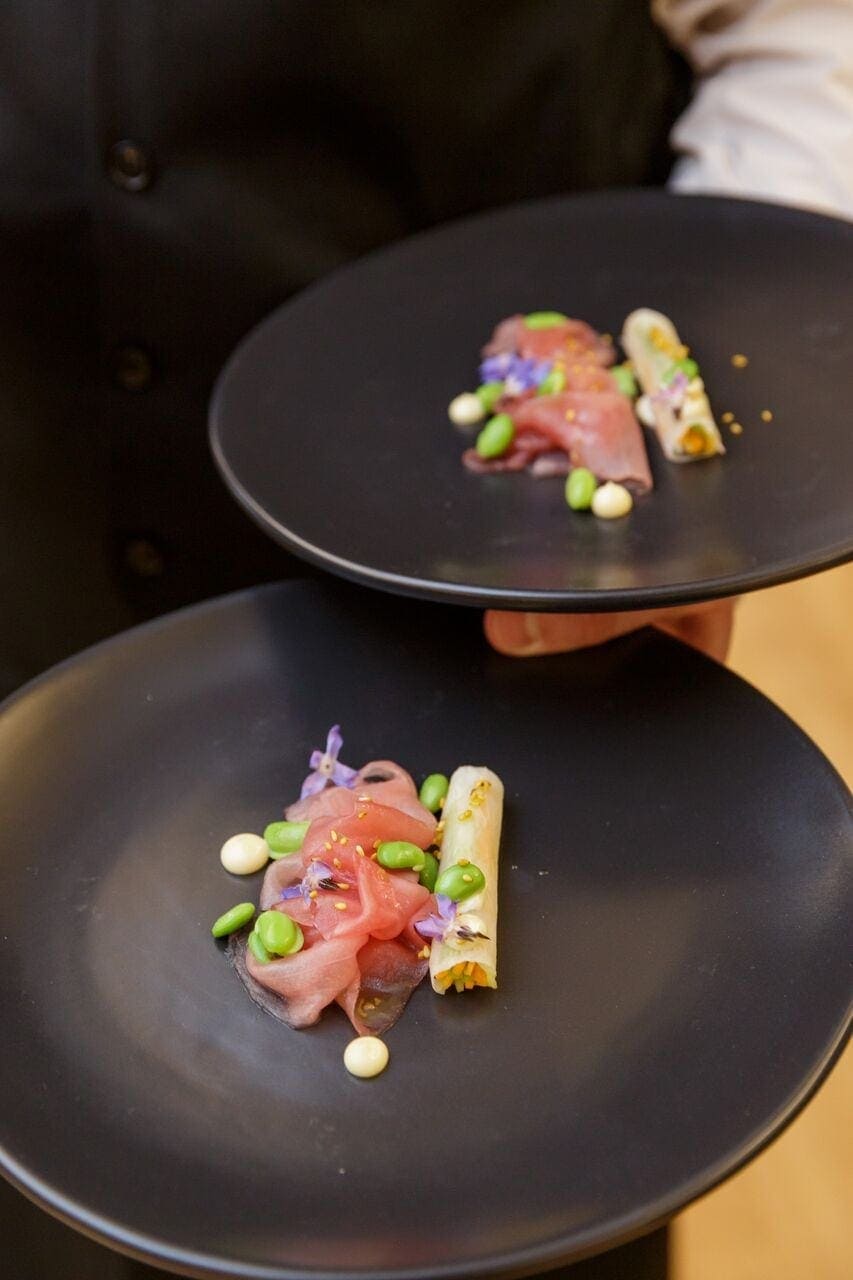
A Stix dish featuring yellowfin tuna ribbons, pickled daikon, yuzu and edamame.
What’s your message to consumers about making sustainable food choices?
I think people need to pay more for food. For instance, some people go out and buy a designer handbag made from plastic and not leather, yet they scrimp and save on what they put in their mouths.
While people are becoming more conscious of their health and what they’re buying, we still need to encourage people to buy less and eat better-quality food. Realistically, we need to eat more vegetables with a smaller piece of protein (100 g)—like tuna. Restaurants are doing that now; there’s no need to consume a 200g piece of meat.
Are you excited that the Eastern Tuna and Billfish Fishery has been certified as sustainable by the Marine Stewardship Council?
Definitely. For us to say we’re using MSC-labelled tuna, it’s like an organic certification. We will definitely promote the MSC certification on our menu.
